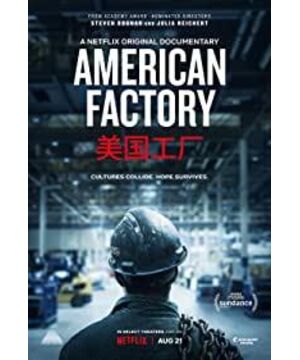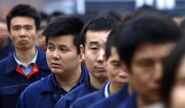American Factory, the world's second largest glass company Fuyao Group's owner Cao Dewang from Fuqing, Fujian, went to Dayton, Ohio to open a factory in Dayton, Ohio.
Dayton is a very typical place and is now called the Rust Belt, but during the 1930s and 1970s, when the US manufacturing boom was on a par with today's Silicon Valley, patents per capita ranked first in the United States.
- After 1970, globalization came;
- In 1993, Clinton signed the North American Free Trade Agreement, allowing auto parts manufacturers to invest and build factories in Mexico;
- 2001 China joined the WTO;
- In 2008, General Motors closed its Moran plant in Dayton, cutting more than 10,000 jobs;
- In 2016, Boss Cao came with 600 million US dollars, as if he had sensed the call of Sichuan Jianguo to return the manufacturing industry to the United States in advance.
He took a fancy to America's low energy prices, land prices, and tax policies.
The documentary is not bad, and the conflict of values between Chinese leaders and American employees can be seen everywhere.
But in fact, cultural differences and racial differences are trivial things. In the film, the Chinese worker team leader complains about why Americans cannot be forced to work overtime, but seventy or eighty years ago, Americans also worked 60 hours a week.
It is not so much a cultural difference, but a difference in the stage of economic development of different countries.
The biggest difference between China and the US is the role of trade unions.
The screenshots in the play describe that when the American labor union intervenes, it is difficult for managers to directly manage employees and to fire unqualified employees.
Why United Airlines is full of empty milk, poor service and bad attitude, the union has contributed to it.
In the eyes of the Chinese worker group leader and Cao Dewang, American workers are inefficient and slow, they like to chat at work, and they cannot be allowed to work overtime on weekends when they are behind schedule.
If the trade union gets involved, it will have a fatal blow to Fuyao. Boss Cao even stated in the film, "If your union comes in, then I won't do it."
In the end, capitalists in socialist countries succeeded in defeating unions in capitalist countries representing workers' interests. www
In fact, not all trade unions are evil, and Chinese and Americans are not so different.
Process inefficiency can be optimized, cultural differences can change the way of working, and people can be replaced if it is not possible, but the core mechanism is to allow employees to complete corresponding tasks according to the requirements of the organization, and to ensure that the organization can give individuals appropriate pressure through various means. It is one of the key elements for a collective to be able to run smoothly to accomplish the established goals.
Setting goals, quantifying output, assessing KPIs, regular reporting, year-end closing, militarized management, in a sense, all serve to create pressure on the parts in the organization.
Protecting inefficient workers from being fired and allowing American employees to work without pressure is certainly intolerable from a management perspective.
At the end of the film, Fuyao is vigorously promoting automation, and all repetitive and single labor will gradually be replaced by machines.
By 2030, around 375 million people will need to find new jobs due to increased automation in various industries (drivers are estimated to be one of the most affected jobs).
American workers and Chinese workers will eventually lose to robots.
View more about American Factory reviews








